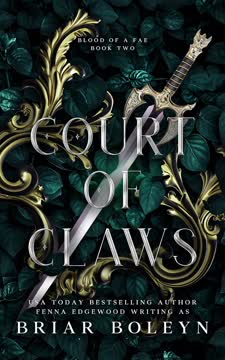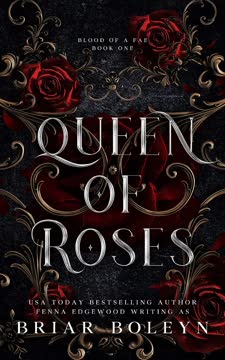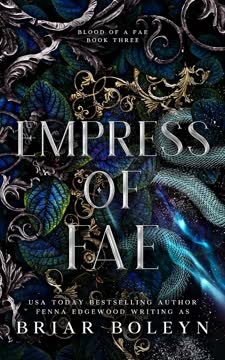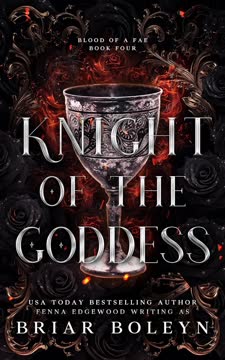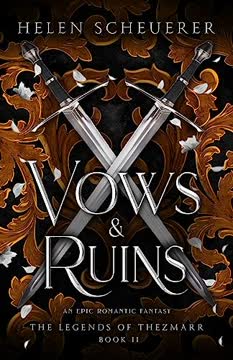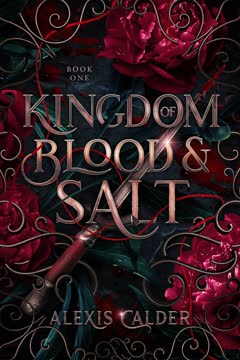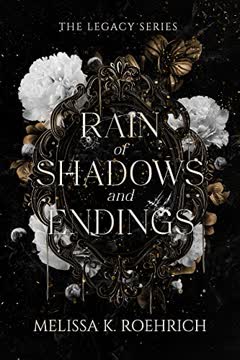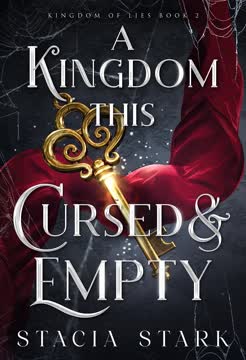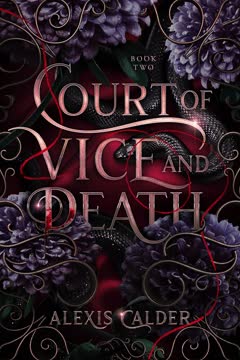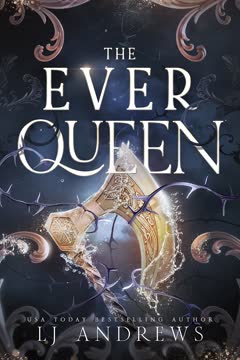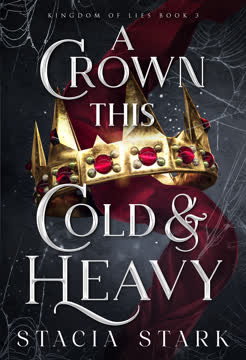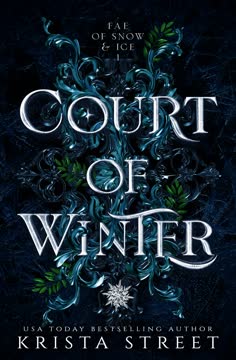Plot Summary
Blood and Betrayal
The story opens in the fae city of Meridium, where a mother flees a mysterious plague that is killing the children of Valtain. She hides with her son, only to watch him die in her arms—then, impossibly, return to life, changed and unnatural. This haunting prologue sets the tone: the fae world is one of beauty, horror, and betrayal, where even the gods are silent. The trauma of this event echoes through the generations, shaping the destinies of those who survive. The sense of loss, guilt, and the failure of protection lingers, a wound that will not heal, and the memory of innocence lost becomes the foundation for all that follows.
Awakening in Chains
Morgan awakens, paralyzed and surrounded by strangers in a lavish, unfamiliar palace. She is mocked and examined by Lyrastra and Ulpheas, only to be rescued by Draven, the enigmatic prince she once trusted. The revelation that Draven is fae—horned and powerful—shatters her assumptions. She learns she has been taken across the sea to the Siabra Empire, far from her war-torn homeland. The trauma of her wounds, the loss of her friend Lancelet, and the realization of her own vulnerability leave her angry and afraid. Draven's motives are unclear, and Morgan's sense of self is threatened by her new status as both captive and "prize."
The Prince's Paramour
Draven claims Morgan as his "paramour" to protect her from the hostile Siabra court, but the title is a double-edged sword. She is both shielded and humiliated, forced to play the part of royal mistress in a society that views her as an outsider and a whore. The court's cruelty is embodied by Lyrastra, who despises Morgan for reasons both personal and political. Morgan's anger simmers as she is confined, watched, and manipulated. Yet, beneath the surface, a dangerous attraction grows between her and Draven, complicated by secrets, power, and the trauma of their shared past.
Court of Shadows
Morgan navigates the treacherous world of the Siabra court, meeting allies like the Bearkin Hawl, the loyal siblings Crescent and Odessa, and the child mage Beks. She learns of Draven's banishment, the murder of his brother, and the court's obsession with bloodlines and power. The Siabra are a people cursed with infertility, haunted by the crimes of their ancestors. Morgan's presence is a catalyst, stirring old resentments and new ambitions. The court is a place of masks and hidden knives, where every gesture is a test and every kindness may conceal a threat.
The Unforgiven Past
Draven's past is revealed: he killed his brother Tabar to save Lyrastra, but the act cost him his place and nearly his soul. The Siabra's curse is rooted in their own cruelty—the destruction of the Valtain fae children. Morgan's own history is equally fraught, marked by betrayal, loss, and the scars of violence. Both are haunted by what they have done and what they have failed to do. Their relationship is a dance of anger, longing, and mutual recognition, as they struggle to forgive themselves and each other.
The Killing Throne
The Siabra choose their ruler through the Blood Rise, a brutal competition where only the strongest, cleverest, and most ruthless survive. Draven, Lyrastra, Avriel, and others enter the trials, each with their own motives and secrets. The challenges are deadly: riddles, monsters, and moral tests that demand sacrifice. The court watches with morbid fascination, hungry for spectacle and blood. Morgan, forced to play the role of supportive consort, is both participant and observer, her fate increasingly tied to the outcome of the game.
Games of Power
As the Blood Rise progresses, alliances shift and betrayals multiply. Avriel, Draven's cousin, is a cunning and vicious rival, willing to do anything to win. Lyrastra's loyalties are ambiguous, her relationship with Draven and Morgan fraught with jealousy and pain. The trials demand not just strength but cunning, compassion, and the willingness to make impossible choices. Morgan's own power—her elemental magic—emerges, both a weapon and a danger she cannot fully control. The line between love and hate, loyalty and self-preservation, grows ever thinner.
The Bond Unveiled
In a moment of crisis, Draven saves Morgan's life by binding her to him through an ancient blood ritual, witnessed by a mysterious child. The bond is more than symbolic: it fuses their magic, their fates, and their very souls. Morgan is furious at the violation, even as she cannot deny the power and intimacy of the connection. Their relationship becomes a crucible, burning away pretense and forcing them to confront their deepest fears and desires. The bond is both salvation and curse, a source of strength and a chain that neither can break.
The Price of Survival
The Blood Rise exacts a terrible toll. Friends and rivals die in agony—devoured by monsters, betrayed by their own kin, or sacrificed to the demands of the trials. Draven is gravely wounded, forced to give up his horns and a piece of his heart to save Morgan and himself. Lyrastra loses her arm. Beks, the child mage, dies defending the city. The survivors are marked by trauma, guilt, and the knowledge that victory comes at a price. Morgan's own power grows, but so does her fear of what she might become.
The Blood Rise Begins
With Draven incapacitated, Morgan is forced to take his place in the final trial, aided by Lyrastra and Nightclaw, her loyal exmoor. The challenge is a gauntlet of pain, magic, and impossible choices. Avriel's treachery is revealed, and Morgan must use all her strength, cunning, and the power of her bond with Draven to survive. In the end, she claims the crown, but the victory is hollow—marked by loss, betrayal, and the knowledge that she has become what she once despised.
Riddles and Sacrifice
The second trial is a test of sacrifice. The mirror demands blood, then more: the life of an innocent, a piece of one's own heart. Draven chooses to mutilate himself rather than sacrifice Morgan. Selwyn kills a beloved animal; Erion betrays his own sister. The mirror is a symbol of the Siabra's curse—their willingness to destroy what is precious for the sake of power. Morgan watches in horror, her own sense of self and morality tested to the breaking point.
The Mirror's Demand
The aftermath of the trial leaves the survivors shattered. Draven's self-sacrifice is both an act of love and a betrayal of trust. Morgan is crowned empress, but the bond between her and Draven is strained to the breaking point. Sephone, the Queen Regent, makes her final move, attempting to seize power through violence and sorcery. The court is thrown into chaos, and Morgan must decide whether to claim her place or walk away from everything she has fought for.
The Final Trial
The last challenge is a race across a collapsing field, a test of courage and destiny. Nightclaw reveals his wings, carrying Morgan above the abyss. Avriel falls to her flames; Lyrastra is maimed but survives. The crown is claimed, but the cost is almost unbearable. Morgan's power, her bond with Draven, and her sense of self are all tested in the crucible of the Blood Rise. The line between victory and defeat, love and hate, is razor-thin.
Wings of Destiny
Morgan is crowned empress, but the triumph is short-lived. Draven reveals the truth of their bond, claiming her as his wife before the court. Sephone, enraged, attempts to kill Morgan, only to be stopped by a supernatural intervention. The Siabra are attacked by the Valtain, led by Rychel, Draven's sister, who has given the grail to the enemy in a desperate bid to undo the curse. The city is besieged, and Morgan and Draven must fight side by side, their powers united, to save what remains.
The Empress Crowned
The battle is won, but at a terrible cost. Beks is dead, Rychel is gone, and the city is in ruins. Morgan, crowned empress against her will, confronts Draven about his betrayal. The truth of their bond, their shared magic, and their intertwined destinies is laid bare. Morgan cannot forgive him, cannot accept the crown, and chooses to leave, seeking her own path and the brother who calls to her in dreams. The story ends with a leap into the unknown, the promise of new trials and new beginnings.
The Queen's Gambit
Sephone, desperate to retain power, reveals her own dark magic and her alliance with Avriel. Her attempt to kill Morgan is thwarted by the intervention of a supernatural "Wise One," who declares Morgan the true empress and warns of greater dangers to come. The Siabra are left leaderless, their future uncertain. The cost of ambition, the danger of unchecked power, and the need for true leadership are starkly revealed.
The Siege of Noctasia
The Siabra city is besieged by the Valtain, led by Rychel and empowered by the grail. Morgan and Draven, united by their bond, wield their combined magic to defend the city, but the victory is pyrrhic. Beks dies, Javer is broken, and the survivors are left to pick up the pieces. The true cost of power is revealed—not just in blood, but in the loss of innocence, trust, and hope.
The Cost of Power
In the aftermath, Morgan and Draven confront the consequences of their choices. The bond that once united them is now a source of pain and resentment. Morgan cannot forgive Draven for binding her against her will, and the loss of Beks haunts them both. The question of what it means to lead, to love, and to survive in a world built on betrayal and sacrifice is left unresolved.
The Breaking of Trust
Morgan learns the truth of her heritage: she is not half-fae, but the lost daughter of the Valtain queen, hidden away for 150 years. Her dreams are memories, her power a legacy of ancient magic. She cannot accept the crown or the bond with Draven, and chooses to leave, seeking her own destiny and the brother who calls to her across time. The story ends with a leap into the unknown, the promise of new trials and new beginnings.
The Daughter of Destiny
Morgan escapes through a magical archway, pursued by Javer, and finds herself in Camelot, face to face with Lancelet, who has survived her own ordeal. The cycle of trauma, survival, and hope continues. The story closes with the promise of new alliances, new dangers, and the enduring power of love, memory, and destiny.
Characters
Morgan Pendragon (Morgan Le Fay)
Morgan is a half-fae, half-human princess whose life is marked by trauma, betrayal, and the struggle for agency. Her journey is one of self-discovery, as she is forced into the role of Draven's paramour, then empress, and ultimately learns she is the lost daughter of the Valtain queen. Morgan's power—elemental magic tied to fire—is both a gift and a curse, a source of strength and danger. Her relationship with Draven is fraught with anger, longing, and the pain of violated trust. She is fiercely loyal, quick-witted, and unwilling to accept the roles others force upon her. Her arc is one of reclaiming her own destiny, even at the cost of love and power.
Kairos Draven Venator
Draven is the enigmatic prince of the Siabra, marked by horns, claws, and a past stained with blood. He killed his brother to save Lyrastra, was banished, and returns to claim the throne through the Blood Rise. Draven's love for Morgan is deep but flawed—he binds her to him through a blood ritual, saving her life but violating her trust. His power is both physical and magical, and his leadership is defined by a willingness to sacrifice himself for others. Draven is tormented by guilt, driven by a desire to atone for the sins of his people and his own failures. His arc is one of learning that true power lies not in domination, but in vulnerability and connection.
Lyrastra
Lyrastra is Draven's sister-in-law, a woman marked by loss, ambition, and a fierce will to survive. Once married to Draven's brother, she is both a rival and a reluctant ally to Morgan. Her relationship with Draven is complex—she owes him her life, yet resents the cost. Lyrastra's arc is one of transformation: from antagonist to comrade, from would-be empress to a woman seeking her own freedom and love. Her sacrifice in the final trial, and her survival despite terrible injury, mark her as both formidable and deeply human.
Avriel
Avriel is Draven's cousin and chief rival in the Blood Rise. He is ruthless, manipulative, and willing to do anything to win—betrayal, murder, and the use of forbidden magic. Avriel's relationship with Sephone, the Queen Regent, is both political and carnal, a partnership of ambition and mutual exploitation. He is the embodiment of the Siabra's worst traits: the willingness to sacrifice others for power, the embrace of cruelty as strength. His downfall is both deserved and inevitable, a warning of the cost of unchecked ambition.
Crescent di Rhondan
Crescent is a Siabra noble with the rare power of stitching—manipulating space and time. He is kind, optimistic, and deeply loyal to Draven and Morgan. His relationship with his partner Gawain and their adopted daughter Taina provides a rare glimpse of love and family in a brutal world. Crescent's role is that of facilitator and protector, helping Morgan navigate the court and escape when needed. His gentle strength and unwavering support are a counterpoint to the violence and betrayal around him.
Odessa di Rhondan
Odessa is Crescent's sister, a formidable fighter and leader of the Steelmaidens. She is blunt, principled, and unafraid to challenge authority. Odessa's loyalty to Draven and Morgan is tested by the court's cruelty and the demands of survival. Her injury in the Blood Rise is a testament to her willingness to sacrifice for others. Odessa serves as a moral anchor, reminding the protagonists—and the reader—of the cost of power and the importance of compassion.
Hawl
Hawl is a Bearkin (Ursidaur), the only one of their kind in the court. As cook, scholar, and occasional confidant, Hawl provides both practical support and philosophical insight. Their outsider status allows them to see the court's flaws with clarity, and their loyalty to Morgan is steadfast. Hawl's relationship with Nightclaw, the exmoor, and their role in helping Morgan train and escape, highlight the importance of kindness and wisdom in a world obsessed with strength.
Rychel
Rychel is Draven's half-sister, a brilliant arcanist and outcast. Her obsession with undoing the Siabra's curse leads her to give the grail to the Valtain, unleashing chaos and destruction. Rychel's arc is one of desperation and hope, a quest for redemption that ends in betrayal and loss. Her relationship with Draven is marked by love, rivalry, and the shared burden of their father's sins. Rychel's actions are both understandable and tragic, a reminder of the dangers of unchecked ambition and the longing for absolution.
Javer
Javer is the court mage, a shielder with a harsh past and a harsher demeanor. His training methods are brutal, and his ambition blinds him to the cost of his actions—most notably in the death of Beks. Javer's loyalty to Draven is genuine, but his inability to protect those in his care marks him as a tragic figure. His arc is one of guilt and the search for redemption, a warning of the dangers of power without empathy.
Beks
Beks is a human child with rare magical abilities, apprenticed to Javer. His innocence, courage, and loyalty make him a symbol of hope in a dark world. Beks' death, a result of overexertion in defense of the city, is a devastating loss that haunts Morgan and Draven. His arc is brief but powerful, a reminder of the cost of war and the fragility of innocence.
Plot Devices
The Blood Rise
The Blood Rise is the central plot device—a brutal, multi-stage competition to determine the next ruler of the Siabra. It is both literal and symbolic: a test of strength, cunning, and morality, and a reflection of the Siabra's curse and their willingness to sacrifice others for power. The trials are varied—riddles, monsters, moral choices—and each demands a different kind of sacrifice. The Blood Rise structures the narrative, providing escalating tension, opportunities for character development, and a lens through which to explore themes of power, loyalty, and the cost of survival.
The Bond
The blood bond between Morgan and Draven is both plot device and metaphor. It saves Morgan's life, fuses their magic, and ties their fates together. The bond is a source of power, intimacy, and conflict—a chain that neither can break, and a crucible that forces them to confront their deepest fears and desires. The bond is also a commentary on agency, consent, and the dangers of love that becomes possession.
The Curse
The Siabra's curse—infertility as punishment for the destruction of the Valtain children—drives much of the plot. It shapes the court's obsession with bloodlines, the desperation for power, and the willingness to sacrifice others. The curse is both literal and symbolic, a manifestation of guilt, trauma, and the consequences of violence. It motivates Rychel's betrayal, the court's cruelty, and Draven's quest for redemption.
The Mirror and the Grail
The magical mirror and the grail are key plot devices in the Blood Rise. The mirror demands ever-greater sacrifices, forcing characters to choose between self-mutilation and the destruction of what they love. The grail, a relic of the gods, is both a source of healing and a tool of destruction—its misuse unleashes chaos and death. Both devices are metaphors for the dangers of unchecked ambition, the cost of power, and the need for true leadership.
Foreshadowing and Dreams
Dreams and visions are woven throughout the narrative, providing foreshadowing, insight into character psychology, and revelations about the past. Morgan's dreams are memories, prophecies, and warnings, guiding her journey and revealing her true heritage. Draven's own gift of true dreaming is a source of both power and pain, shaping his choices and his relationship with Morgan. The use of dreams blurs the line between past and present, fate and free will, and underscores the story's themes of memory, trauma, and destiny.
Analysis
Court of Claws is a dark, emotionally charged fantasy that interrogates the nature of power, trauma, and agency in a world built on betrayal and sacrifice. At its heart, the novel is a story of survival—of individuals and peoples haunted by the sins of their ancestors, struggling to forge meaning and connection in the aftermath of violence. The Blood Rise, with its brutal trials and impossible choices, is both a literal contest and a metaphor for the cost of ambition and the dangers of unchecked power. Morgan's journey—from captive to empress, from pawn to player—is a meditation on agency, consent, and the search for self in a world that seeks to define and possess her. The bond between Morgan and Draven is both salvation and curse, a crucible that tests the limits of love, trust, and forgiveness. The novel's use of dreams, memory, and prophecy blurs the boundaries between past and present, fate and free will, and challenges the reader to consider the true cost of survival. Ultimately, Court of Claws is a story about the possibility of redemption—not through the erasure of the past, but through the courage to face it, the willingness to sacrifice, and the hope that even in a world built on blood, new beginnings are possible.
Last updated:
Review Summary
Court of Claws receives mixed reviews, with many praising its world-building, character development, and plot twists. Readers enjoy the romance and action-packed storyline. Some find the main character, Morgan, frustrating and immature at times. The book is compared to popular series like ACOTAR and features tropes such as enemies-to-lovers and fake relationships. Many reviewers are eager for the next installment, despite some criticisms of pacing and character decisions. Overall, it's seen as an improvement over the first book in the series.
